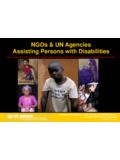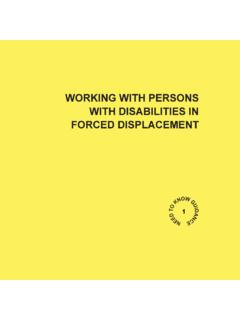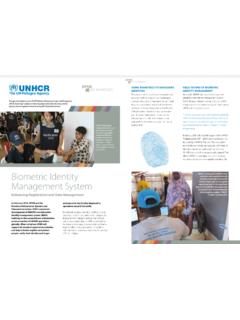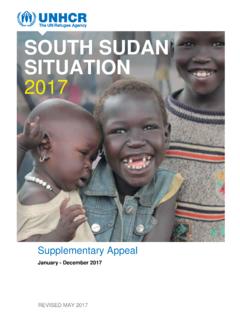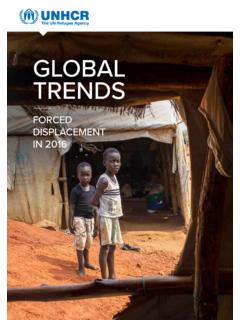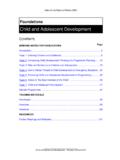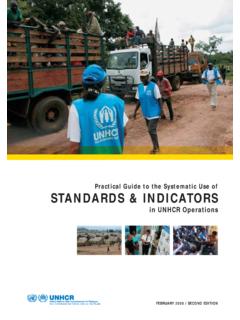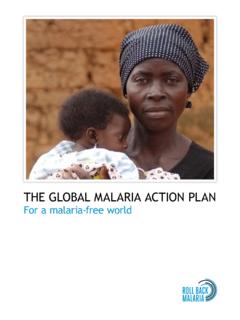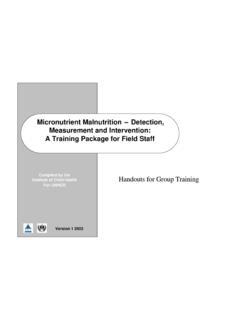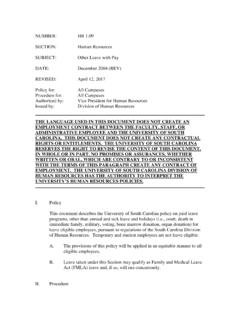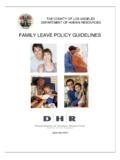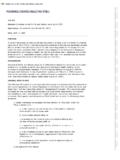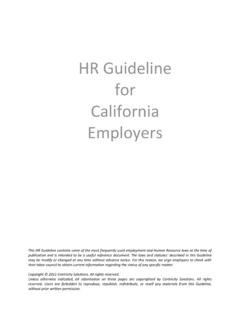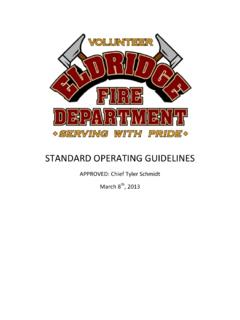Transcription of The Reunification of Refugee Families - UNHCR
1 OFFICE OF THE UNITED NATIONS. HIGH COMMISSIONER FOR refugees . GENEVA. UNHCR guidelines ON Reunification OF Refugee Families . (July 1983). I. INTRODUCTION. 1. The circumstances in which refugees leave their country of origin frequently involve the separation of Families . Such separation invariably leads to hardship and sometimes to tragic consequences. It may also create serious obstacles to a Refugee 's integration in a new homeland. Guided by both humanitarian and practical consider-ations, and pursuant to its responsibility under the Statute of the Office to promote measures designed to improve the situation of refugees and to facilitate their assimilation within new national communities, UNHCR has sought since its inception to ensure the Reunification of separated Refugee Families .
2 2. The present note restates the position of the Office concerning the types of family Reunification promoted by UNHCR , the categories of persons eligible for assistance, and the action to be taken by UNHCR Headquarters, by the Field Offices, and by refugees themselves to achieve the Reunification of Refugee Families under various circumstances. II. THE PRINCIPLE OF THE UNITY OF THE FAMILY. 3. The High Commissioner's action in promoting family Reunification is supported by the principle, set forth in both the Universal Declaration of Human Rights of 1948 and the United Nations Covenant on Civil and Political Rights of 1966, that "the family is the natural and fundamental group unit of society and is entitled to protection by society and he State.
3 " The Conference of Plenipotentiaries which adopted the l951 United Nations Convention relating to the Status of refugees recognized the significance of this principle for refugees when it approved, in its Final Act, the following recommendation: The Conference, Considering that the unity of the family, the natural and fundamental group unit of society, is an essential right of the Refugee , and that such unity if constantly threatened, and Noting with satisfaction that, according to the official commentary of the Ad Hoc Committee on Statelessness and Related Problems (E/1618, p.)
4 40) the rights granted to a Refugee are extended to members of his family, Recommends Governments to take the necessary measures for the protection of the Refugee 's family, especially with a view to: (1) Ensuring that the unity of the Refugee 's family is maintained particularly in cases where the head of the family has fulfilled the necessary conditions for admission to a particular country, (2) The protection of refugees who are minors, in particular unaccompanied children and girls, with special reference to guardianship and adoption.
5 4. The subject of the Reunification of separated Refugee Families was considered by the Executive Committee of the High Commissioner's Programme at its Twenty-eighth (1977) and Thirty-second Sessions (1981) and conclusions were adopted which are reproduced in Annex I. Particular attention is drawn to Conclusion No. 24 (1981), paragraphs 6 (absence of documentary proof of marriage or filiation), 7 (unaccompanied minors), 8 (uniform status for all family members) and 9 (special assistance to permit Reunification ).
6 III. TYPES OF FAMILY Reunification PROMOTED BY UNHCR . 5. In accordance with the principles referred to above, the following types of family Reunification should receive the support of UNHCR : (a) Reunification of the "nuclear family", consisting of husband and wife and their dependent children. There is a virtually universal consensus in the international community concerning the need to reunite members of this family nucleus. The following points should be noted in this connection: (i) Husband and wife. Besides legally married spouses, couples who are actually engaged to be married, who have entered into a customary marriage, or who have lived together as husband and wife for a substantial period can be considered eligible for UNHCR assistance.
7 The same applies in principle to spouses in a polygamous marriage if it was validly contracted in the country of origin. On the other hand, estranged spouses who do not intend to live as a family unit in the country of asylum are not normally eligible for UNHCR assistance for Reunification with each other, they may however qualify for Reunification with their children. (ii) Parents and children. Although some countries of asylum make a distinction between minor children and those who have come of age, it is UNHCR policy to promote the Reunification of parents with at least those dependent, unmarried children, regardless of age, who were living with the parents in the country of origin.
8 (iii) Reunification of unaccompanied minor children with their parents and siblings. An unaccompanied minor child should be reunited as promptly as possible with his or her parents or guardians as well as with siblings. If the minor has arrived first in a country of asylum, the principle of family unity requires that the minor's next-of-kin be allowed to join the minor in that country unless it is reasonable under the circumstances for the minor to join them in another country. Because of the special needs of children for a stable family environment, the Reunification of unaccom-panied minors with their Families , whenever this is possible, should be treated as a matter of urgency.
9 Any unjustified delays should be reported to Headquarters. (See p. 12 on the tracing of family members.)1. (b) Reunification of other dependent members of the family unit. It is the position of UNHCR . that the Reunification of the following categories of persons of particular concern is also required by the principle of family unity: 1 Other aspects of the special responsibility of the High Commissioner to promote the best interest of Refugee or displaced unaccompanied minor children are outside the scope of the present note and are treated in separate guidelines and memoranda.
10 (i) Dependent parents of adult refugees . Humanitarian and economic considerations militate in favour of Reunification of dependent parents who originally lived with the Refugee or Refugee family, or who would otherwise be left alone or destitute. (ii) Other dependent relatives. Where persons such as single brothers, sisters, aunts, cousins, etc. were living with the family unit as dependents in the country of origin, or where their situation has subsequently changed in such a way ( , by the death of a spouse, parent or bread-winner) as to make them dependent upon Refugee family members in the country of asylum, they should also be considered eligible for family Reunification .

